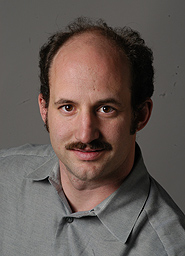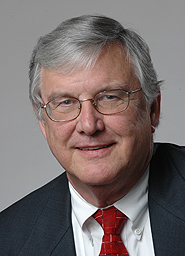Berkeleyan
National Academy of Engineering elects three Berkeley faculty
![]()
21 February 2007
Three members of the Berkeley faculty have been elected to the National Academy of Engineering (NAE), one of the highest professional distinctions for an American engineer.
 Eric Brewer (Peg Skorpinski photos) |
The new members are Eric Brewer, professor of electrical engineering and computer sciences; John (Bill) Morris Jr., professor of materials science and engineering; and Paul Wright, professor of mechanical engineering. Six Berkeley alumni are also among the 64 new NAE members whose election to the academy was announced Friday, Feb. 9.
This brings to 85 the total number of Berkeley faculty in the society. The total U.S. membership in the academy is now 2,217, and the number of foreign associates is 188. Among academic institutions, Berkeley, including its alumni, has one of the highest representations in the NAE.
Brewer, said the NAE, was honored for the design of highly scalable Internet services; Morris for "advancing our understanding of the strength and toughness of materials through microstructural manipulation"; and Wright for "the invention of the first open-architecture control of manufacturing systems, and for the development of Internet-based CAD/CAM systems."
 Bill Morris |
Morris joined both the Berkeley faculty and Lawrence Berkeley National Laboratory in 1971. His research in metallurgy and materials science has included work on phase transformations, cryogenic steels and superalloys, electromigration, and joining in electronic packaging.
 Paul Wright |
Wright is the A. Martin Berlin Professor of Mechanical Engineering and chief scientist at the Center for Information Technology Research in the Interest of Society (CITRIS); he was associate dean in the College of Engineering from 1999 to 2005. His research areas include energy scavenging and storage, smart materials, design and manufacturing for micro-integration of "intelligent objects," and design of wireless-sensor systems.
Academy membership honors those who have made outstanding contributions to the field of engineering research, practice, or education. This includes significant contributions to engineering literature, the pioneering of new and developing technologies, major advancements in traditional fields of engineering, and the development and implementation of innovative approaches to engineering education.

